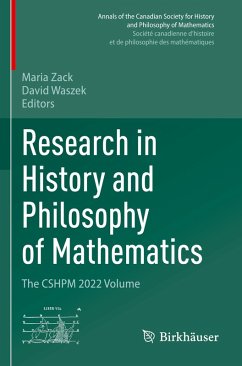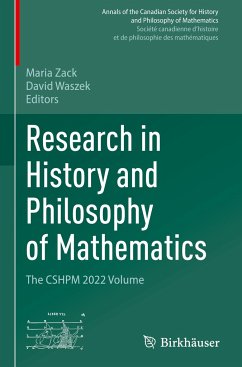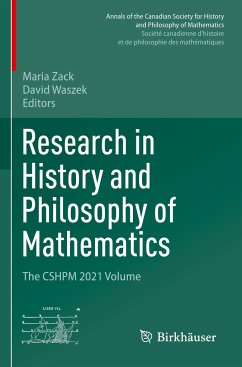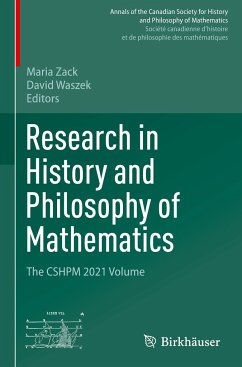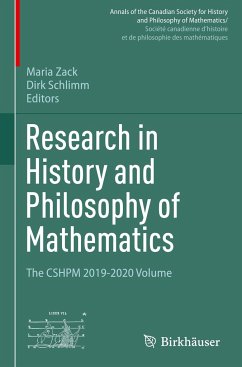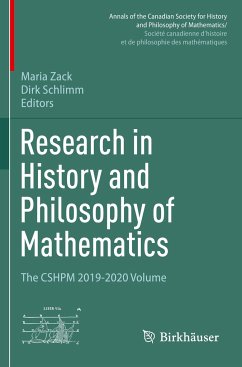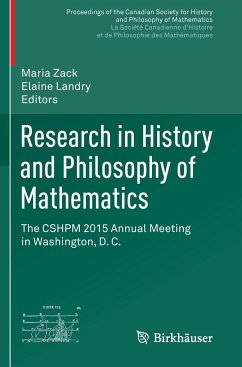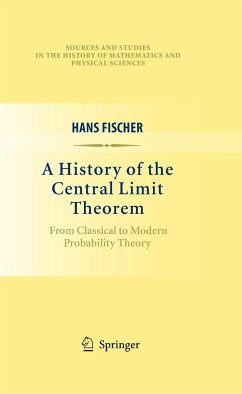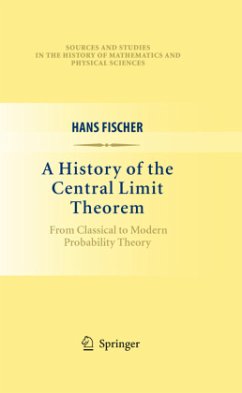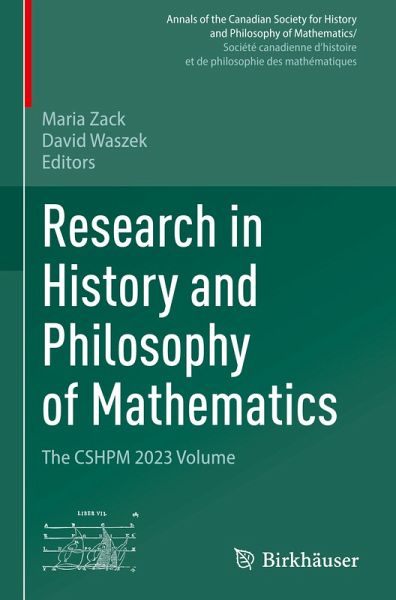
Research in History and Philosophy of Mathematics
The CSHPM 2023 Volume
Herausgegeben: Zack, Maria; Waszek, David

PAYBACK Punkte
49 °P sammeln!
This volume contains 8 papers that have been collected by the Canadian Society for History and Philosophy of Mathematics. It showcases rigorously reviewed contemporary scholarship on an interesting variety of topics in the history and philosophy of mathematics.Some of the topics explored include:The work of Alfred Clebsch and Adolph Mayer on the theory of the second variation, a topic in the calculus of variationsThe history of The Analyst - the journal that would eventually become the Annals of Mathematics - and its founding editor, Joel HendricksAn examination of early attempts at introducin...
This volume contains 8 papers that have been collected by the Canadian Society for History and Philosophy of Mathematics. It showcases rigorously reviewed contemporary scholarship on an interesting variety of topics in the history and philosophy of mathematics.
Some of the topics explored include:
The work of Alfred Clebsch and Adolph Mayer on the theory of the second variation, a topic in the calculus of variationsThe history of The Analyst - the journal that would eventually become the Annals of Mathematics - and its founding editor, Joel HendricksAn examination of early attempts at introducing transformations into the geometry curriculum at the secondary levelAnna Sfard's commognitive theory of learning and how it can be applied to gain insights into certain aspects of the history of mathematicsAnalyzing archaeological data from Rapa Nui (Easter Island) and the kinship system of the Natchez tribe of the Mississippi Valley as examples of utilizing ethnomathematicsin mathematics education
Written by leading scholars in the field, these papers are accessible not only to mathematicians and students of the history and philosophy of mathematics, but also to anyone with a general interest in mathematics.
Some of the topics explored include:
The work of Alfred Clebsch and Adolph Mayer on the theory of the second variation, a topic in the calculus of variationsThe history of The Analyst - the journal that would eventually become the Annals of Mathematics - and its founding editor, Joel HendricksAn examination of early attempts at introducing transformations into the geometry curriculum at the secondary levelAnna Sfard's commognitive theory of learning and how it can be applied to gain insights into certain aspects of the history of mathematicsAnalyzing archaeological data from Rapa Nui (Easter Island) and the kinship system of the Natchez tribe of the Mississippi Valley as examples of utilizing ethnomathematicsin mathematics education
Written by leading scholars in the field, these papers are accessible not only to mathematicians and students of the history and philosophy of mathematics, but also to anyone with a general interest in mathematics.



